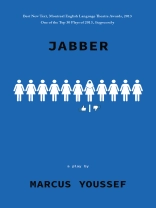Like many outgoing young women, Fatima feels rebellious against parents she sees as strict. It just so happens that she is Egyptian-born and wears a hijab. When anti-Muslim graffiti appears on the walls of her school, Fatima transfers to a new school. The guidance counsellor there, Mr. E., does his best to help Fatima fit in, but despite his advice she starts an unlikely friendship with Jorah, who has a reputation for anger issues. Maybe, just maybe, Fatima and Jorah start to, like, like each other …
As their mutual attraction grows, the lines Fatima and Jorah cross as they grow closer become the subject of an intense exploration of boundaries – personal boundaries, cultural boundaries, and inherited religious and political boundaries. Fatima and Jorah discover that appearances matter; they’ve been exposed for their whole lives to images that begin to colour their relationship: images of the Middle East, the working class, and how teenage boys and teenage girls behave. Put all these reactive factors together in the social laboratory that is a high school and observe: is there a solution for Fatima and Jorah?
High school, like no other social space, throws together people of all histories and backgrounds, and young people must decide what they believe in and how far they are willing to go to defend their beliefs. Inside a veritable pressure cooker, they negotiate cross-cultural respect and mutual understanding. Jabber does its part to challenge appearances – and the judgments people make based on those appearances.
Mengenai Pengarang
Dennis Foon is a playwright, producer, screenwriter, and novelist.












